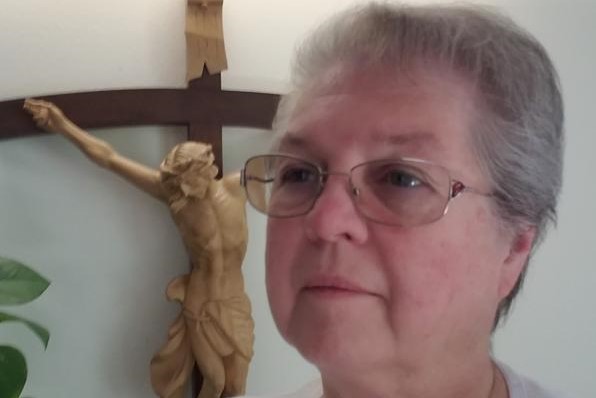A simple reality vexes politicians who argue about the numbers of migrants allowed into the United States, the legal hoops these people must jump through to become citizens, and strategies to prevent more migrants from coming – more migrants keep coming. Even if migrants are aware of the potential of a vast border wall or the threat of family separations, these factors aren't enough to deter thousands of people from taking their chances with expensive and dangerous migration.
Lost in the debate are two key considerations about human needs and dignity:
- What factors in their home countries compel migrants to risk the trip to the United States?
- How can we best meet the needs of migrants once they arrive?
Sisters play a big role in meeting the great needs of migrants seeking asylum in the United States. We hear a lot about conditions in federal detainment centers, but sisters provide organization and support for networks of volunteers all along the border. They look beyond rhetoric and statistics, instead focusing on human beings and their human needs.
Select two groups of four students each.
Give the first group an envelope containing $2,146 in play money (use board game money or make your own, but provide plenty of smaller denominations). Explain that they are a family of four living at the federal poverty level of $25,750 a year (2019 income level). Give them five minutes to talk out loud to decide how they'd divide a month's worth of money to meet these needs for one month:
- Food
- Clothing
- Shelter
- Electricity
- Water
- Hygiene products
- Medical care
- Transportation
- Education
- Entertainment
- Savings
- Other
Invite the family to explain its priorities. Then facilitate as fellow students critique their choices. Try not to share your opinions at this point unless students get silly or overly unrealistic.
Give the group a sealed envelope. Explain that they are a migrant family seeking asylum in the United States and invite them to open the envelope, which contains nothing. Explain that, like many migrant families, they've arrived with only the clothes on their backs. Give them five minutes to talk out loud to decide how they'd meet these needs for one month:
- Food
- Clothing
- Shelter
- Electricity
- Water
- Hygiene products
- Medical care
- Transportation
- Education
- Entertainment
- Savings
- Other
Invite the family to explain its responses. Then facilitate as fellow students critique their choices. Try not to share your opinions at this point unless students get silly or overly unrealistic.
Offer your constructive opinion about the two groups' choices, as well as the critiques made by fellow students. Then ask:
- What was the most difficult truth you realized about living at the federal poverty level?
- What would be the most challenging thing about coming to a new country with no money?
Conclude by suggesting a final scenario for both groups. Say "The first family spent $3 on a lottery ticket and won $231,700 a year for life. When they added that to their original income, they decided they were rich and could afford to donate 10 percent of their money to good causes. That 10 percent, divided across 12 months, equals $2,146 a month. What a coincidence!" Then ask:
"What are some good causes that the lucky family might donate to?"
(if possible, display prayer so class can pray it together)
Lord, you alone know the destination
of each journey, of each person
Be with those who might never escape
the threats, the fear, the pain that traps them.
Be with those who find the courage
and the way to new life, new freedom.
Be with those tangled,
uncertain if they'll ever be safe or settled.
And be with those whose path leads them
to dare to share, dare to care, dare to give hope.
Amen.
Please give us your feedback! Fill out a quick survey about this lesson and how we can serve you better. Remember that its title is "Welcoming ayslum-seekers in New Mexico"
Tell us what you think about this resource, or give us ideas for other resources you'd like to see, by contacting us at education@globalsistersreport.org
